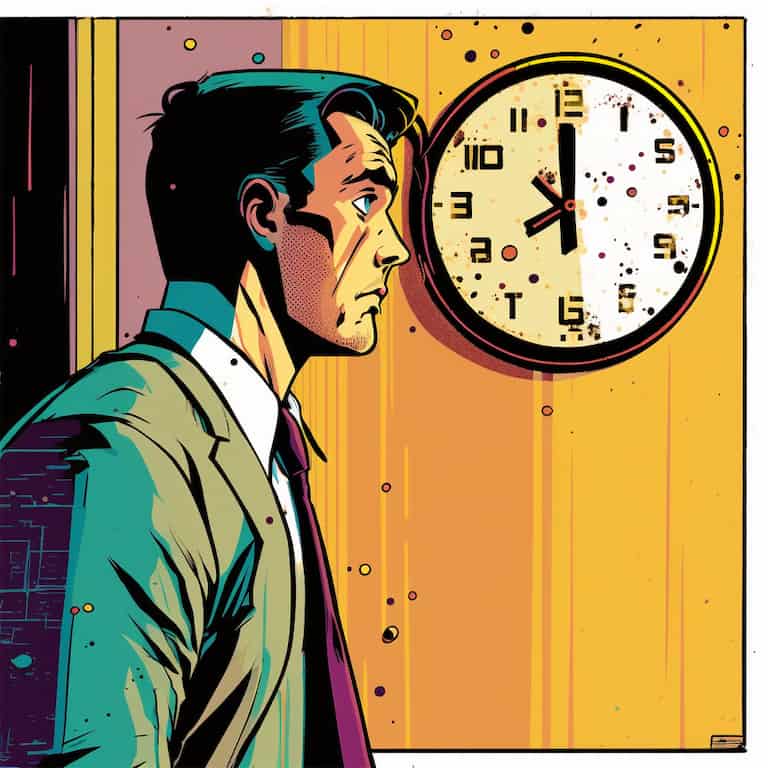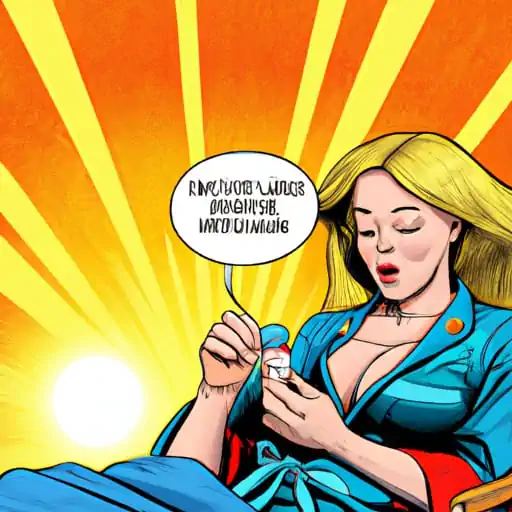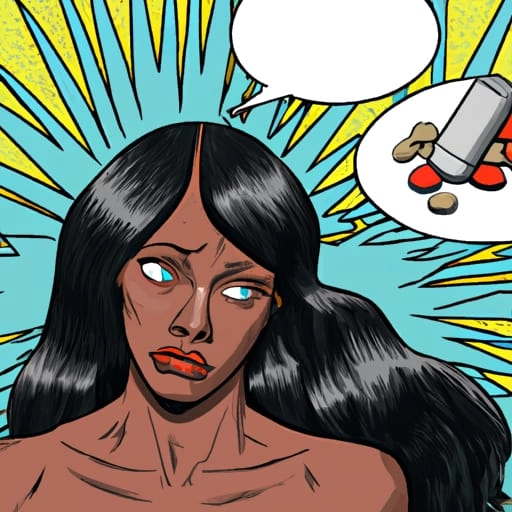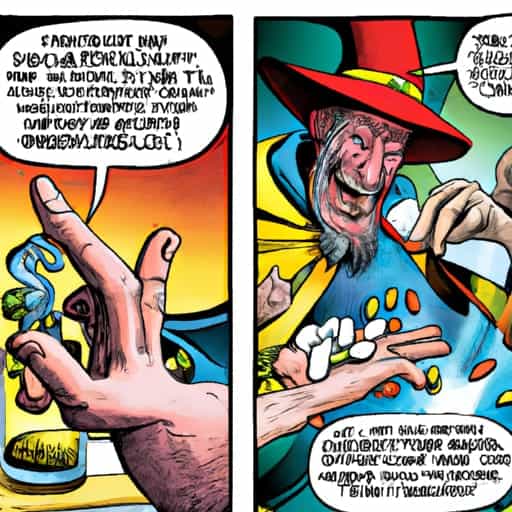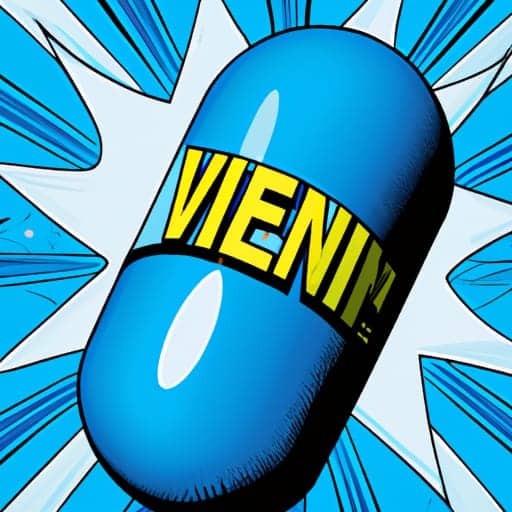How long does it take for antidepressants to work?
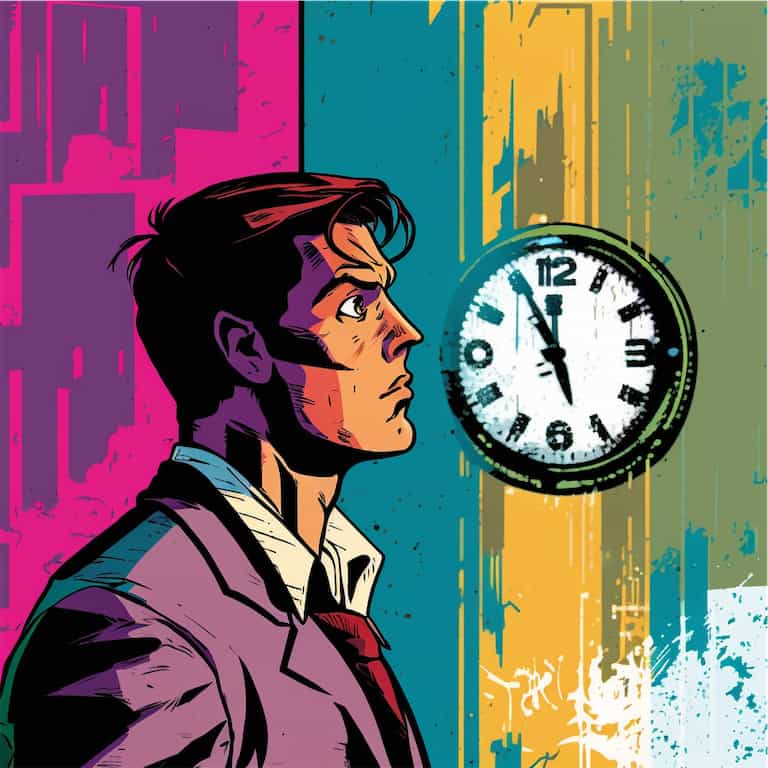
Introduction
TL:DR Summary
Antidepressants can take several weeks to several months to reach full efficacy and individual factors such as type and severity of depression, dosage, and biochemistry can affect the timing of antidepressant effectiveness.
Definition of Antidepressants
Antidepressant medication is a type of prescription drug that is used to treat depression and other mental health conditions. These medications work by altering the levels of certain neurotransmitters in the brain, such as serotonin, norepinephrine, and dopamine, which can help improve mood and alleviate symptoms of depression. There are several different types of antidepressants available, including selective serotonin reuptake inhibitors (SSRIs), serotonin-norepinephrine reuptake inhibitors (SNRIs), and tricyclic antidepressants (TCAs), among others.
Brief Overview of Antidepressant Treatment for Depression
The development of antidepressants began in the 1950s, following the discovery of the mood-enhancing effects of the drug iproniazid. This led to the development of the first class of antidepressants, monoamine oxidase inhibitors (MAOIs), which were followed by tricyclic antidepressants (TCAs) in the 1960s. These early antidepressants worked by increasing the levels of certain neurotransmitters in the brain, such as serotonin and norepinephrine. In the 1980s, selective serotonin reuptake inhibitors (SSRIs) were introduced, which specifically target serotonin and have since become the most commonly prescribed type of antidepressant. More recently, newer classes of antidepressants, such as serotonin-norepinephrine reuptake inhibitors (SNRIs) and atypical antidepressants, have been developed. Despite their widespread use, antidepressants remain a topic of ongoing research and debate, with questions about their effectiveness, potential side effects, and appropriate use.
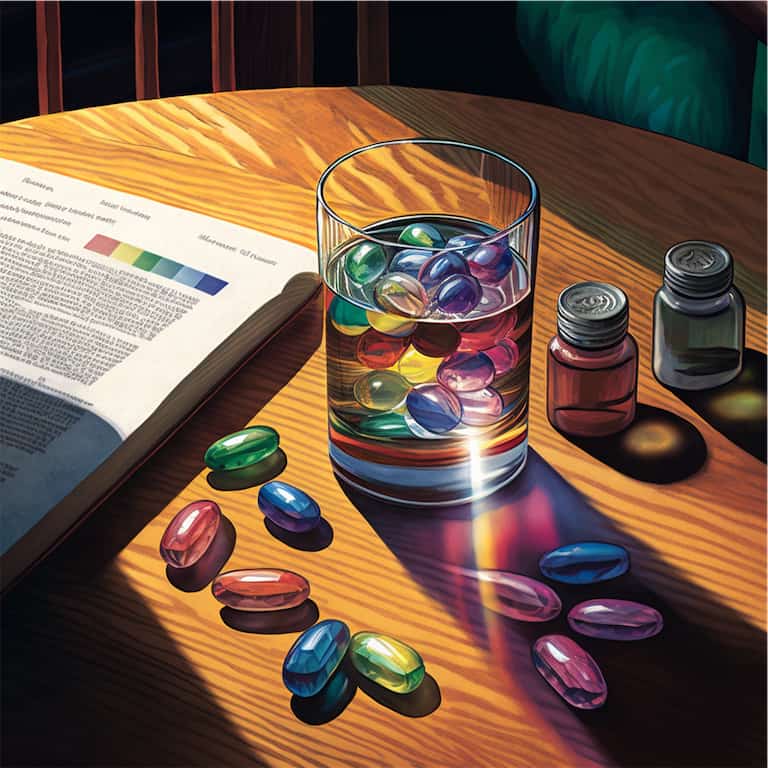
Factors Affecting Antidepressant Efficacy
Type and Severity of Depression:
The type and severity of depression can significantly impact the effectiveness of antidepressant medication. For example, some antidepressants may work better for certain types of depression, such as SSRIs for major depressive disorder or TCAs for neuropathic pain. Additionally, more severe forms of depression may require higher doses or longer treatment durations to achieve significant symptom improvement.
Dosage and Frequency of Antidepressant Use:
The dosage and frequency of antidepressant use can also play a role in their efficacy. While higher doses may be more effective for some individuals, they may also increase the risk of side effects. Similarly, while daily dosing is typical for many antidepressants, some may require more frequent dosing or specialized formulations to achieve optimal results.
Individual Biochemistry and Metabolism:
Individual variations in biochemistry and metabolism can also impact the effectiveness of antidepressants. Some people may have genetic or physiological factors that affect how their body processes and responds to antidepressant medication, which can influence their overall efficacy. Additionally, factors such as age, sex, and co-occurring health conditions may also impact how an individual responds to antidepressant treatment.
How Antidepressants Work:
The mechanisms by which antidepressants work are complex and not fully understood. However, it is generally believed that they work by altering levels of certain neurotransmitters in the brain, such as serotonin, norepinephrine, and dopamine. By doing so, antidepressants can help regulate mood and alleviate symptoms of depression. However, there is ongoing research into other potential mechanisms of action, such as changes in neuroplasticity and inflammation, which may further enhance our understanding of how antidepressants work and improve their efficacy.
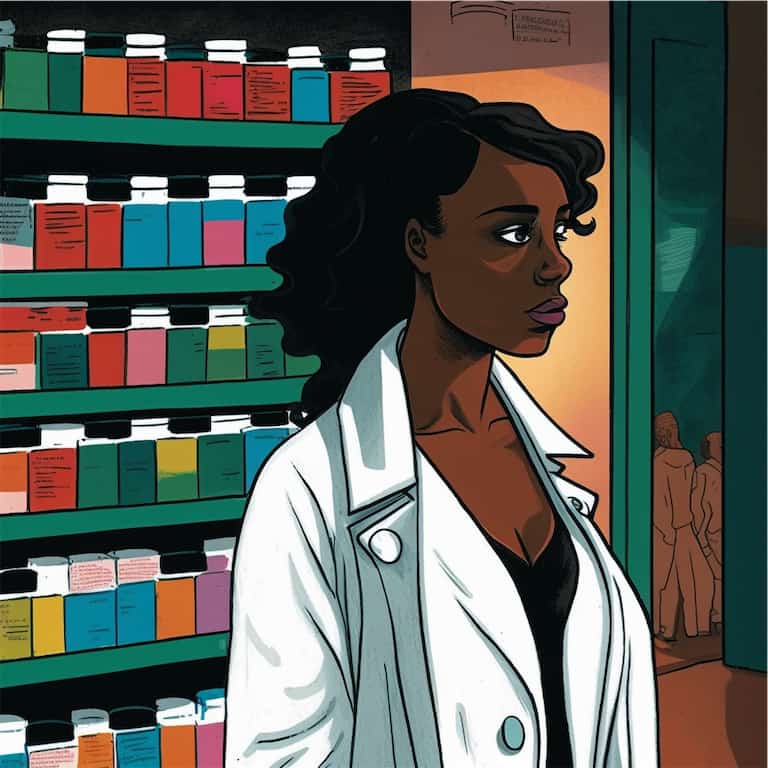
Classes of Antidepressant Medication
Serotonin and Norepinephrine Reuptake Inhibitors (SNRIs):
SNRIs work by blocking the reuptake of both serotonin and norepinephrine, which increases their levels in the brain. This mechanism of action helps to regulate mood and improve symptoms of depression, anxiety, and chronic pain. SNRIs typically take several weeks to achieve their full therapeutic effect.
Selective Serotonin Reuptake Inhibitors (SSRIs):
SSRIs work by blocking the reuptake of serotonin, which increases its levels in the brain. By doing so, SSRIs can help regulate mood and alleviate symptoms of depression and anxiety. SSRIs typically take several weeks to achieve their full working therapeutic effect.
Tricyclic Antidepressants (TCAs):
TCAs work by blocking the reuptake of both serotonin and norepinephrine, as well as other neurotransmitters, such as dopamine and acetylcholine. This mechanism of action helps to regulate mood and improve symptoms of depression, anxiety, and chronic pain. TCAs typically take several weeks to achieve their full therapeutic effect.
Monoamine Oxidase Inhibitors (MAOIs):
MAOIs work by inhibiting the activity of the enzyme monoamine oxidase, which breaks down neurotransmitters such as serotonin, norepinephrine, and dopamine. This mechanism of action helps to increase their levels in the brain, which can help regulate mood and alleviate symptoms of depression and anxiety. MAOIs typically take several weeks to achieve their full therapeutic effect.
Which Antidepressants Are Most Commonly Prescribed?
Selective serotonin reuptake inhibitors (SSRIs) are the most commonly prescribed antidepressants, as they have been found to be effective and have fewer side effects than other antidepressants.
Serotonin and norepinephrine reuptake inhibitors (SNRIs) are similar to SSRIs, but their superiority in treating depression is still unclear.
Tricyclic antidepressants (TCAs) were among the first antidepressants available, but their use has declined due to their higher toxicity and more severe side effects.
Monoamine oxidase inhibitors (MAOIs) are also associated with high toxicity and potential for serious side effects, and are typically used as a last resort when other treatments have failed
Time Taken To Work:
While the exact time to onset can vary depending on the individual and the specific medication, most antidepressants take several weeks to achieve their full therapeutic effect.
In truth, it can take four to eight weeks after the first dose and tow to three months to get the optimum benefit. The Royal College of Psychiatrists recommends you should take antidepressants for nine months.
This delay is thought to be due to the time required for changes in neurotransmitter levels to take effect, as well as potential changes in neuroplasticity and gene expression. In some cases, early improvement in symptoms may be seen before the full therapeutic effect is achieved. It is important for individuals to continue taking their medication as prescribed, even if they do not see immediate improvement in their symptoms.
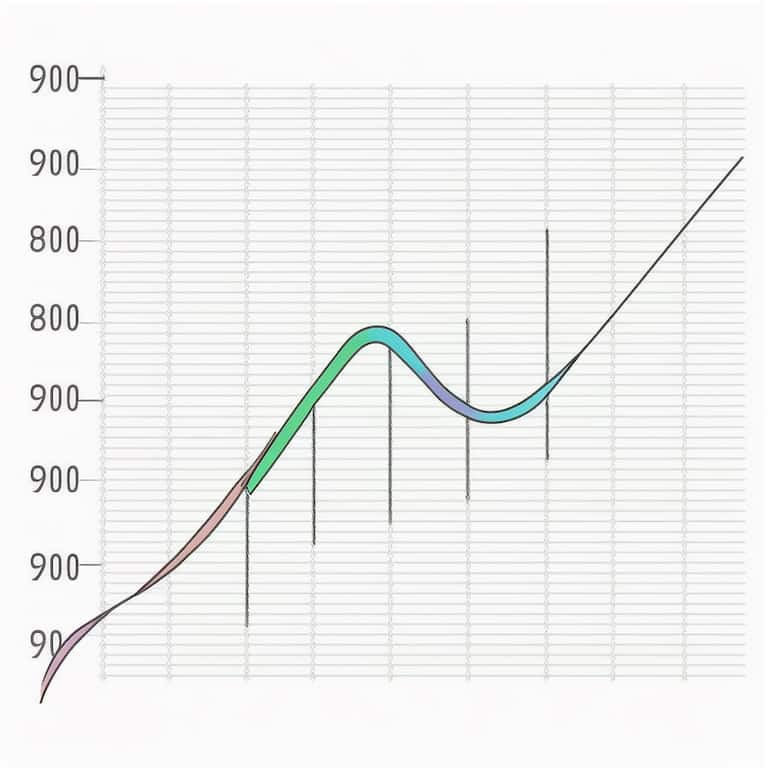
It Takes A While To See If They’re Working
Onset of Action:
The onset of action of antidepressants refers to the time it takes for the medication to begin to have an effect on symptoms of depression. This can vary depending on the specific medication, but typically ranges from one to four weeks. While some individuals may experience improvements in symptoms earlier, it is generally recommended to continue taking the medication for several weeks to determine whether it is effective.
Peak Effectiveness:
The peak effectiveness of antidepressants refers to the point at which the medication is most effective in treating symptoms of depression. This can vary depending on the specific medication and the individual, but typically occurs within six to eight weeks of starting treatment. After this point, further improvement in symptoms may be less pronounced.
Duration of Effectiveness:
The duration of effectiveness of antidepressants refers to how long the medication continues to be effective in treating symptoms of depression. This can vary depending on the specific medication and the individual, but typically ranges from six months to one year. After this point, some individuals may experience a relapse of symptoms and require ongoing treatment.
Importance of Consistent and Adequate Dosage:
Consistent and adequate dosage of antidepressants is important to ensure their effectiveness. Missing doses or taking the medication inconsistently can reduce its effectiveness and increase the risk of relapse. Additionally, inadequate dosing may not provide sufficient relief of symptoms, while excessive dosing can increase the risk of side effects.
It is important to work closely with a medical professional to determine the appropriate dosage and to adhere to the prescribed dosing schedule.
The Role of Placebo Effect:
The placebo effect refers to the phenomenon in which a person experiences an improvement in symptoms after receiving a placebo (inactive substance) instead of an active medication. In the context of antidepressant treatment, the placebo effect can play a significant role in the perceived effectiveness of the medication, particularly in the early stages of treatment.
This is why it is important for clinical trials of antidepressants to include a placebo control group, which can help to distinguish the true effects of the medication from the placebo effect.

The Importance of Patience: Don’t Stop Taking Them Too Soon
“Nature does not hurry, yet everything is accomplished.”
Lao Tzu
The effectiveness of antidepressants often takes time to become apparent, with many medications taking several weeks or months to reach their full therapeutic effect. It is important for individuals undergoing treatment to have patience and continue to take their medication as prescribed, even if they do not experience immediate improvements in their symptoms.
The Possibility of Early Improvement of Depression Symptoms:
While it is true that many antidepressants take several weeks to achieve their full therapeutic effect, it is also possible for individuals to experience early improvement in their symptoms.
Some individuals may experience noticeable improvements in mood or other symptoms within the first week or two of treatment, even if the full effects of the medication have not yet been realized. This early improvement can be a positive sign and may indicate that the medication is likely to be effective in the long term.
The Importance of Early Follow-Up:
Early follow-up with a medical professional is important for several reasons. First, it can help to monitor for any potential side effects or changes in symptoms that may require adjustments to the treatment plan and to see if the pills are working.
Additionally, early follow-up can help to reinforce the importance of adhering to the prescribed medication regimen, which is critical to achieving the best possible outcome.
Finally, early follow-up can provide an opportunity to discuss any concerns or questions that may arise during the course of treatment, and to make any necessary adjustments to the treatment plan based on the individual’s response to the medication.

so how Long Do I need To Be taking Antidepressants? (Read if you’re new to depression advice and antidepressants, otherwise, skip)
Antidepressant medications are a type of medication used to treat symptoms of depression, including major depressive disorder and other mood disorders. Selective serotonin reuptake inhibitors (SSRIs) are one of the most commonly prescribed types of antidepressants and are used to treat depression by increasing the amount of serotonin in the brain. Tricyclic antidepressants (TCAs) and monoamine oxidase inhibitors (MAOIs) are two other types of antidepressants that are used to treat depression.
Depression symptoms can include feelings of sadness, hopelessness, and loss of interest in activities. In severe cases, depression can lead to suicidal thoughts, making prompt treatment essential. Antidepressant medications can help to relieve depressive symptoms and improve quality of life, but they can take a long time to work and may cause unpleasant side effects.
Different people may respond differently to different types of antidepressant medications. The onset of action and the peak effectiveness of an antidepressant can vary depending on the specific medication and the individual.
In some cases, an antidepressant may not provide significant improvement, or the individual may experience unpleasant side effects even after taking them for a long while, and a different medication may need to be tried. A healthcare provider is the best source of information on different treatment options for depression.
The American Psychiatric Association recommends that people with depression start with antidepressant medication as a first-line treatment, along with talk therapy such as cognitive behavioral therapy.
Antidepressants can take several weeks to several months to reach full efficacy, and individual factors such as the type and severity of depression, dosage, and biochemistry can affect the timing of antidepressant effectiveness.
In general, it’s a good idea to be patient when starting an antidepressant medication.
One to two weeks isn’t long enough to see an improvement. Realistically you might need two to three months to get antidepressants to work. But for most people it’s in between those two timescales.
While some people may experience symptom relief within the first week of treatment, it can take several weeks to several months for the full benefit of the medication to be realized. In some cases, a higher dose or a different type of antidepressant may be needed.
It’s also important to be aware of the potential for side effects when taking an antidepressant medication. Common side effects of SSRIs can include dry mouth, weight gain, and sexual dysfunction. Tricyclic antidepressants can cause drowsiness, blurred vision, and constipation.
MAOIs can cause weight gain, dizziness, and low blood pressure. In rare cases, severe side effects can occur, and it’s important to contact a healthcare provider if they occur.
Antidepressant discontinuation syndrome can also occur when stopping an antidepressant medication, and it’s important to follow the instructions of a healthcare provider when discontinuing an antidepressant. Withdrawal symptoms can include anxiety, headache, and insomnia.
If they don’t seem to be working, then get yourself medically reviewed.
With the right treatment and support, it’s possible to experience significant improvement in symptoms of depression and improve quality of life.

Frequently Asked Questions
How long after taking antidepressants will I feel better?
The time it takes for antidepressants to work can vary depending on the individual and the specific medication. Some individuals may start to experience improvements in symptoms within a few days or weeks, while others may not notice a significant change for several weeks or months. In general, it is important to continue taking the medication as prescribed, even if improvements in symptoms are not immediately apparent.
Why does it take so long for antidepressant medications to work?
Antidepressants work by altering levels of certain neurotransmitters in the brain, which can take time to have an effect on symptoms of depression. Additionally, changes in neuroplasticity and gene expression may also play a role in the delay between starting treatment and experiencing significant symptom improvement. It is important to be patient and continue taking the medication as prescribed, as it may take several weeks or months to achieve its full therapeutic effect.
Can antidepressants work immediately?
While some individuals may experience early improvement in symptoms after starting antidepressant treatment, it is more common for the medication to take several weeks or months to achieve its full therapeutic effect. This delay is due to the time required for changes in neurotransmitter levels and other neurobiological processes to take effect.
What works faster – tricyclic antidepressants TCAs or selective serotonin reuptake inhibitors SSRIs?
In general, SSRIs are considered to have a more favorable side effect profile and are better tolerated than TCAs. While the onset of action may be similar for both classes of medication, SSRIs are often preferred due to their lower risk of side effects, particularly in overdose situations.
What if I don’t improve on an antidepressant?
If an individual does not experience improvement in symptoms after a reasonable period of time on an antidepressant medication, it may be necessary to explore alternative treatment options. This may include adjusting the dosage or switching to a different medication or form of treatment, such as psychotherapy.
How long does it take to treat depression with medication?
The duration of treatment for depression with medication can vary depending on the individual and the specific medication. In general, treatment is recommended for at least six to 12 months after symptom improvement is achieved to prevent relapse. For some individuals, ongoing treatment may be necessary to manage chronic or recurrent depression. It is important to work closely with a medical professional to determine an appropriate treatment plan and to monitor for any potential side effects or changes in symptoms.

VI. Reference Section
Links to Authoritative and Well-Respected Sources
URL: https://www.buzzrx.com/blog/how-long-does-it-take-for-depression-medication-to-work
Other Related Articles on This Blog
101 Fascinating, Amazing and Sometimes Worrying Antidepressant Statistics: 2023
Does Sertraline Make Your Hair Fall Out? Hair Loss and Antidepressants

